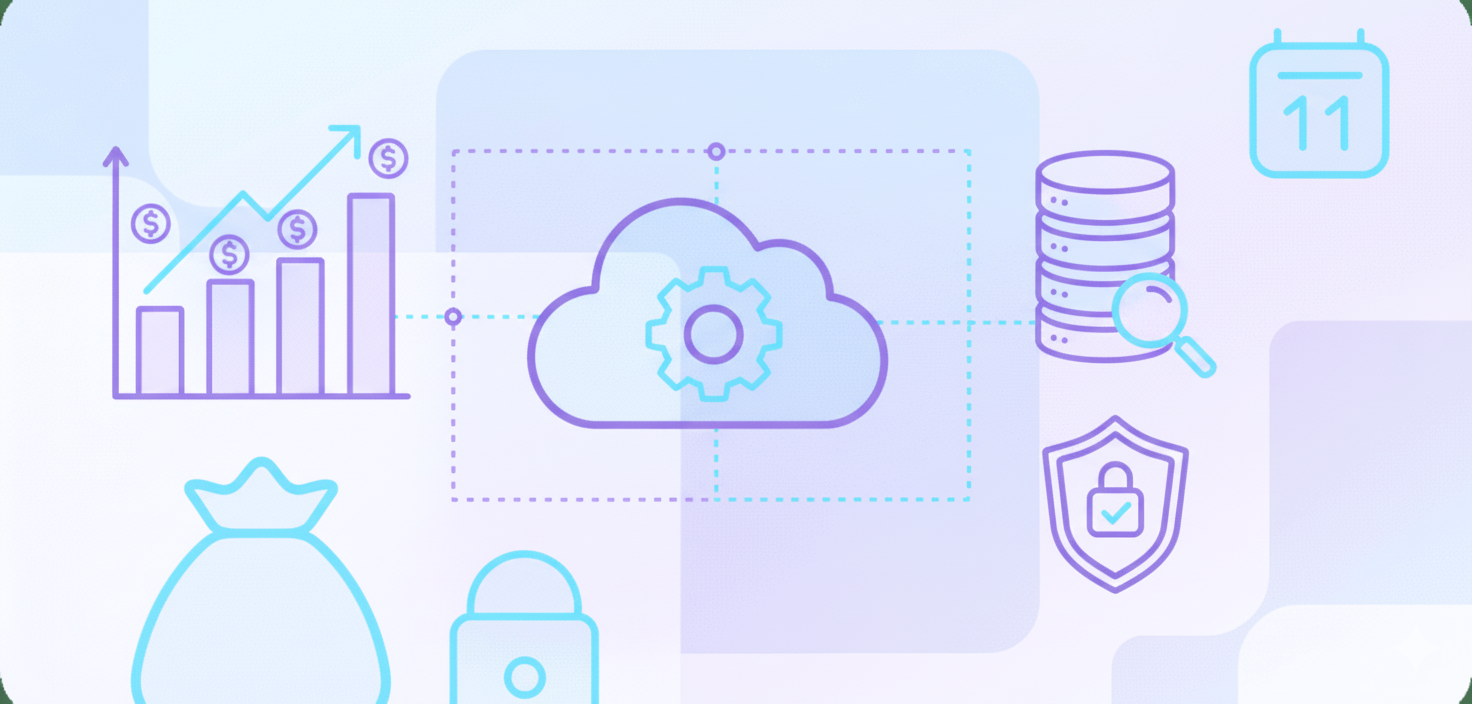modelos de receita
O que é Faturamento Empresarial SaaS?

O que é Faturamento Empresarial SaaS?
O Faturamento Empresarial SaaS é destinado a grandes organizações com necessidades potencialmente complexas de faturamento, processamento de pagamentos e gerenciamento de assinaturas. Este sistema suporta muitos produtos e serviços e permite modelos de precificação flexíveis, como:
- assinaturas por níveis
- taxas baseadas no uso
- pacotes personalizados.
A flexibilidade e eficiência do Faturamento Empresarial SaaS podem ser um fator ao considerar mudanças na precificação, segmentos de clientes e oportunidades de mercado.
Como a cobrança SaaS Enterprise difere da cobrança padrão?
Aqui estão as diferenças entre a cobrança empresarial SaaS e a cobrança padrão:
|
Recurso |
Cobrança Padrão |
Faturamento Empresarial SaaS |
|
Projetado para |
Projetos menores |
Organizações que demandam escalabilidade |
|
Gerenciamento de assinaturas |
Limitado |
Gerenciar múltiplos planos de assinatura simultaneamente |
|
Faturamento |
Padrão |
Executar a tarefa de criar faturas de forma eficaz e eficiente |
|
Métodos de Precificação Suportados |
Padrão |
Adaptar-se a diferentes métodos de precificação como recorrente, baseado em uso e por níveis |
|
Flexibilidade/Cobranças |
Padrão |
Incorporar cobranças variáveis com base no uso, precificação por níveis ou uma combinação destes |
|
Alterações de Conta |
Padrão |
Capacidade de fazer alterações na conta facilmente |
|
Foco no Desenvolvimento |
Padrão |
Direcionado para a estratégia de negócios e a perspectiva de longo prazo da empresa SaaS |
Quais são os desafios comuns de cobrança enfrentados por empresas SaaS?
O faturamento SaaS envolve diversas considerações em relação à receita recorrente, modelos de precificação baseados no uso e conformidade regulatória.
- Erros de faturamento e o tratamento de pagamentos falhos são problemas frequentes que exigem atenção cuidadosa.
- Adaptar as estruturas de faturamento para acomodar o crescimento dos negócios é crucial para o sucesso sustentado.
- Manter medidas de segurança robustas e aderir à conformidade regulatória são aspectos inegociáveis do faturamento SaaS.
Como posso melhorar a precisão do faturamento B2B SaaS Enterprise e a satisfação do cliente?
As seguintes práticas podem ser implementadas em relação à precisão do faturamento SaaS e à satisfação do usuário.
- Implemente a medição em tempo real usando sistemas orientados a eventos para rastrear o uso com precisão.
- Considere políticas de preços flexíveis e cumpra as leis aplicáveis em todos os locais onde o negócio SaaS opera, e faça isso, usando a pilha de tecnologia existente.
- Auditar regularmente os fluxos de trabalho de faturamento, integrar o faturamento com análises de produto e manter uma única fonte da verdade para dados de clientes e receita para otimizar processos para melhoria contínua.
O software de faturamento empresarial SaaS pode fornecer dados relacionados à compreensão do cliente e aos recursos de suporte, o que pode impactar a experiência do cliente.
Como posso otimizar o faturamento B2B SaaS Enterprise?
Para melhorar a eficiência da cobrança corporativa B2B SaaS, é imperativo adotar um sistema de cobrança robusto capaz de acomodar as complexidades da receita recorrente e do gerenciamento de assinaturas.
Tais sistemas permitem:
- renovações facilitadas
- precisão
- informações em tempo real
- integração com ferramentas de CRM, ERP e de análise.
- Essas medidas têm o potencial de impactar as taxas de erro e o tempo gasto.
Considere oferecer portais de autoatendimento, investir em software de faturamento especializado, aproveitar a automação para um reconhecimento de receita preciso e garantir preços flexíveis e conformidade global para simplificar o processo de faturamento e se adaptar às preferências do cliente.
Por que minha empresa deveria investir em software de faturamento SaaS Enterprise?
Investir em software de faturamento empresarial SaaS é uma decisão que pode afetar as empresas SaaS, especialmente aquelas que buscam escalar e expandir globalmente.
- automatiza processos de faturamento complexos, reduz erros manuais e garante consistência, impulsionando, em última análise, a eficiência e o crescimento da receita.
- apresenta análises para processos de tomada de decisão e se relaciona com experiência do cliente através de portais de autoatendimento e múltiplas opções de pagamento.
- auxilia em adaptáveis Estratégias de Precificação, administra complexos cobrança SaaS situações, e auxilia com expansão global, abordando multimoedas e considerações de conformidade fiscal.
- reduz o churn ao monitorar o processo de faturamento e identificar assinantes em risco.
- O investimento inicial e a implementação podem ser significativos.
- A integração com sistemas existentes pode exigir personalização e expertise técnica.
- Manutenção contínua e atualizações são necessárias para garantir que o software permaneça eficaz e em conformidade.
Como posso garantir que meu sistema de faturamento escale com o crescimento da empresa?
Ao procurar um software de faturamento para sua empresa, é importante focar em um que seja escalável. Isso significa que o software deve ser:
- projetado para gerenciar um número substancial de transações B2B.
- ter compatibilidade de integração com sistemas existentes
- seguir internacionalmente padrões de conformidade
- capaz de gerenciar diversos métodos de faturamento, como Assinaturas com períodos diferentes ou de diferentes regiões’ Métodos de Pagamento, em caso de expansão internacional.
Analise cuidadosamente as capacidades do software em termos da capacidade de realizar múltiplos tipos de faturamento, gerenciar renovações, e incluir um modelo de precificação personalizado sem apresentar problemas de desempenho, o que é um pré-requisito para escalabilidade e a capacidade de crescer com o negócio.
Conclusão
O Faturamento Empresarial SaaS é crucial para grandes organizações, que exigem um aprimoramento das capacidades de faturamento, processamento de pagamentos e gerenciamento de assinaturas com o auxílio da introdução do funcionamento do SaaS. A implementação de um robusto sistema de faturamento empresarial SaaS está relacionada à eficácia de uma empresa, à experiência do cliente e à dinâmica competitiva dentro do mercado SaaS em evolução.